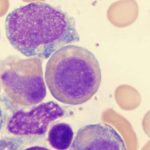Blood Donation: What You Need to Know
Blood Donation: What You Need to Know
January is National Blood Donor Month, a time to celebrate the lifesaving impact of blood and platelet donors. National Blood Donor Month honors voluntary blood donation while encouraging more people to give blood. January is typically a period of critical blood shortages after blood donations slow during the holidays.
Throughout this article, we’ll provide detailed explanations of the importance of blood donations and how the shortage affects patients needing the donations.
Who needs blood donations?
Blood donors help patients of all ages who are battling various ailments. Did you know that someone in the U.S. needs blood every two seconds?
How are you helping patients by donating your blood? Here are a few types of patients who benefit from your donation:
Cancer patients
Cancer patients need specifically platelets donations. Certain cancers and cancer treatments prevent patients from producing their own.
Trauma patients
Trauma patients need donations called power red. Red cells carry oxygen throughout the body and are frequently given to trauma and surgery patients. Some of these patients may require AB elite plasma donation as AB plasma helps stop bleeding.
Sickle cell patients
The donation for sickle cell patients goes by whole blood or power red. Patients with sickle cell disease require multiple donor blood transfusions every year. The donated blood must closely match the donor’s blood type to avoid transfusion-related complications.
Most patients with sickle cell disease are African American. A donor of the same race or ethnicity has the most compatible blood type match.
Burn patients
AB elite is the type of donation that burn patients need. The plasma from this type of donation helps maintain blood pressure and other vital functions.
Patients with chronic diseases
A single whole blood donation can help more than one patient with chronic diseases.
Blood supply shortage
The national blood shortage forces doctors to prioritize patients with the most critical needs. Since 2019, blood demand has increased 10 percent in hospitals with trauma centers and more than five times in other healthcare facilities providing blood transfusions.
The number of patients that need blood outweighs the low supply, and the low blood supply affects patient care in a big way. Without an adequate blood supply, patients receive suboptimal care.
Now, doctors evaluate each patient based on specific criteria to determine the most critical needs. In urgent cases, hospitals look to other hospitals and trauma centers to see if they can support their blood supply inventory.
Additionally, many patients undergoing chemotherapy need blood transfusions, and with the lack of blood supply, they have to reschedule lifesaving treatments.
With blood being a lifesaving treatment method for millions of patients, blood shortage has become a growing concern for healthcare professionals.
Who can donate blood?
If you wish to donate blood, it’s essential to make sure you meet the requirements and prepare appropriately.
First, find a blood bank or blood drive and make an appointment. Make sure to ask about any specific requirements for donors and what kinds of identification you need to bring with you.
The requirements:
- At least 16 years old to donate whole blood
- At least 17 years old to donate platelets
- Weight at least 110 pounds
- In good health and feeling well
Along with the requirements to donating blood, you are not eligible to donate blood if:
- You have a fever at the time of donation, state that you do not feel well or are on antibiotics.
- If you have a history of injection drug use or a history of selected sexually transmitted diseases.
- You have recent exposure to or a history of hepatitis, malaria, mad cow disease, babesiosis or Chaga’s disease.
- You have symptoms compatible with HIV infection such as, persistent fevers, night sweats, unexplained weight loss, persistent cough or shortness of breath, persistent diarrhea or swollen lymph nodes.
What to expect when donating blood?
If you have a donation appointment or you would like to have more information before proceeding with a donation, here is what you can expect when donating.
- Blood donation will take about an hour. Bring a source of entertainment to relax with.
- You don’t need to know your blood type. Blood banks and blood drives need donors of all blood types. You may know your blood type once you receive your blood donor card or create a profile through the Red Cross Blood Donor App.
- You must be in good health. Seasonal illnesses like the flu can affect your blood donating ability. Most medications will not disqualify you, but call and ask a professional if you want to be sure.
- Rest and relax. Get a good night’s sleep before your donation and avoid any heavy lifting or strenuous activity post-donation. If you feel dizzy or lightheaded, stop and sit or lie down until you feel better.
- Hydrate and eat a healthy meal before your donation. You must drink plenty of fluids and eat nutritious foods before giving blood.
- You’re never too old to donate. Many elderly individuals are some of the most dedicated blood donors. As long as you are 17 years, you can give blood.
- FREE post-donation snack. Blood contains red and white blood cells, plasma and platelets, water and various nutrients and minerals. Replenishing yourself after a donation is of the utmost importance.
After the process of a donation, some may feel side effects. These side effects will not last long, but you may temporarily experience:
- Feeling lightheaded: Lie down for a few minutes until you feel ready to get back up.
- Bleeding: Lift your arm and apply pressure to that area for a few minutes.
- Temporary bruising: If this happens, use an ice pack.
Where to donate blood in Wake County
The Red Cross is experiencing the worst blood shortage in over a decade. If you meet the requirements to donate blood and would like to do so, find a donation center HERE.





